
The state of plastics
Many Co-op owners and shoppers have shared their interest in reducing plastic usage in the store. From bioplastics, to compostable plastics to recycling options, the Ashland Food Co-op continues to research what works best as we move towards our goal of being a zero waste store. Here is where we stand.
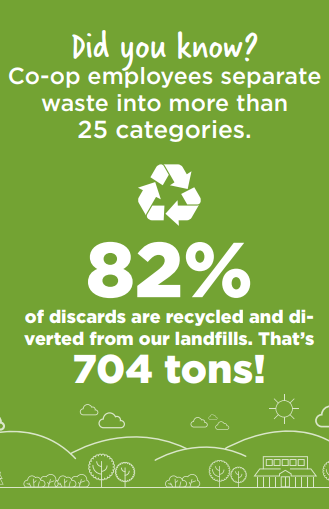
Right now, there is a trade-off in terms of food and plastic waste. Plastic is extraordinarily unique in its ability to preserve food and prevent spoilage and waste. But the trade-off is its very long lifespan.
Reducing plastic waste - by using alternative storage materials, or going package-free when possible - results in more food spoilage and waste, which can sometimes have a bigger ‘carbon footprint’ than plastic use alone.
The best way to summarize: as of March 2019, no perfect solution for plastic alternatives exist.
This isn't meant to make excuses for waste - as you may know, we already divert over 80% of our waste from the landfill. But it is important to know where things stand, and what some of the many decision-making factors are, that go into this debate about containers and plastic. Let’s break it down:
Bioplastics
Bioplastics often come from unsustainable sources - for example, monocropped GMO corn that could be used to feed people, or is grown on the other side of the country and requires a large carbon input to deliver.
As the name implies, bioplastics often have lifespans as long as petroleum plastics - they’re still plastic! The “end of life” assessment for bioplastics is not much better than petroleum plastics. For example, a single-use plastic fork made from GMO corn will still end up in the landfill.
Though there are recyclable and compostable bioplastics, they often require specialized machinery at waste disposal sites to be broken down. Our region does not currently have that infrastructure, and the additional carbon footprint to ship these materials elsewhere can quickly outweigh the ‘bio’ benefits.
The Co-op continues to explore options in this area: more readily compostable bioplastic bags are hitting the market which we will continue to test.
Alternatives to plastic
AFC has brought in cardboard packaging for some produce, like cherry tomatoes and strawberries. And yes, they are completely recyclable!
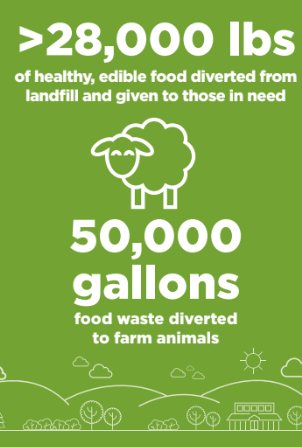
However, it can be difficult for customers to visually connect with the product - can you tell how juicy and ripe those strawberries are through the cardboard? Without that visual connection, a shopper may be hesitant to buy the product, inadvertently leading to more food waste (because the product stays on the shelf longer).
Cardboard also leads to more spoilage because of the lack of light and its ability to carry moisture (leading to molding).
Is generating more food waste an acceptable trade-off to having recyclable and compostable packaging? This is another instance where analyzing production inputs and requirements, instead of just ‘end-of-life’ issues for packaging, gives a better idea of the sustainability of a packaging type.
Plastics recycling
Many plastics are no longer being accepted by local waste management services. Generally, white, rigid plastics (example: yogurt containers) are still being recycled; clear, non-rigid plastics (soda bottles, salsa containers) are not. So buy smart!
Clamshells are a common area of concern. The Co-op is very lucky to be able to recycle plastic clamshells from products that were purchased at AFC. You can bring those clamshells back into the store for recycling. Even better, this recycling is more carbon neutral because the clamshells hitch a ride back to Eugene on existing truck routes (rather than a one-off transit run).
If you're purchasing greens, you can also bring your own container to fill from the bulk spinach and baby greens bins. Alternatively, OrganicGirl salad clamshells are made of 100% recycled plastic.
Our commitment
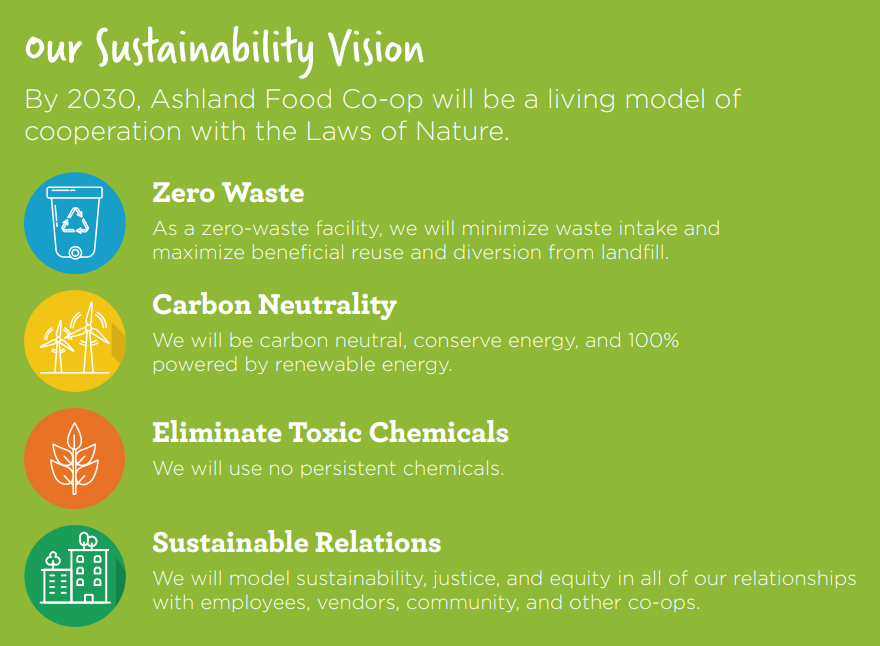
It’s easy to see that with the options available right now, there’s always a trade-off. In our own store and through the National Co-op Grocers network, we continue to look for a solution that is not petroleum-based, non-GMO, and that can be recycled or composted fully. When that solution arrives, we will be ready!
Right now, you should aim to reduce your overall plastic consumption when making purchasing decisions; choose reusable packaging when you do have to purchase plastic (clear salsa packages make great storage for leftovers); and choose recyclable plastic (white plastic and clamshells) if you think you’ll only get one use out of the packaging.
For some additional reading on the topic of plastics and packaging, check out this report put together by the Oregon Department of Environmental Quality.
More Co-op News
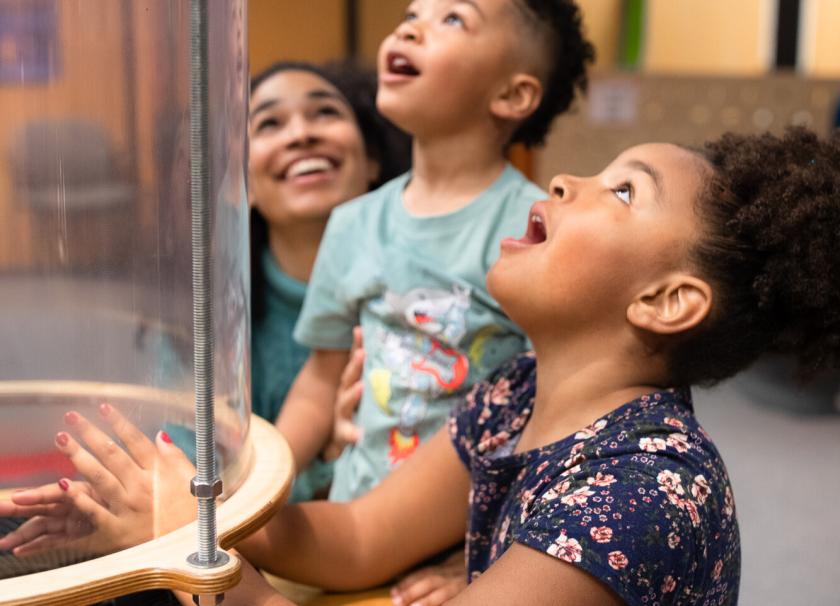
April Change for Good: ScienceWorks
ScienceWorks: Growing Sustainably, Connecting Community
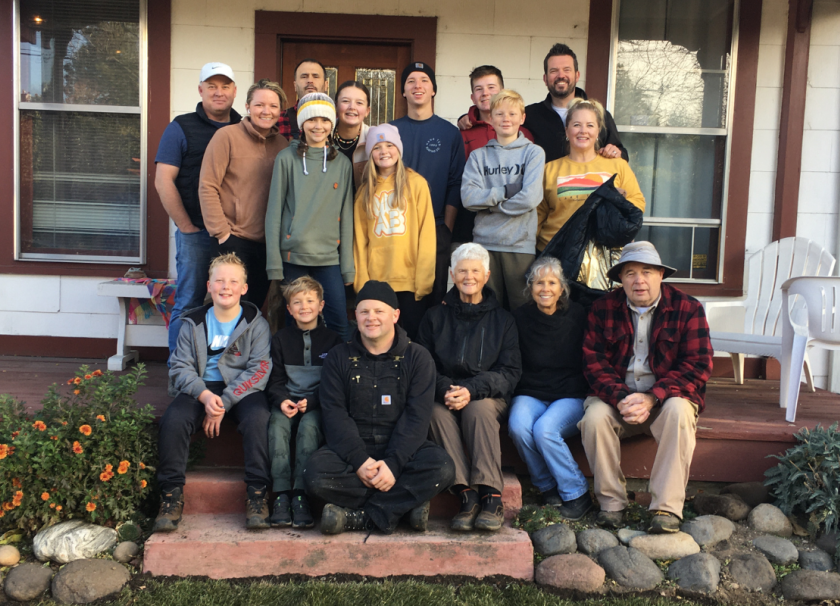
March Change for Good: Parker House Project
Homelessness remains a serious issue in Southern Oregon, and women—especially single women and mothers with children—face unique challenges when seeking shelter and stability. That’s where Parker House Project comes in.
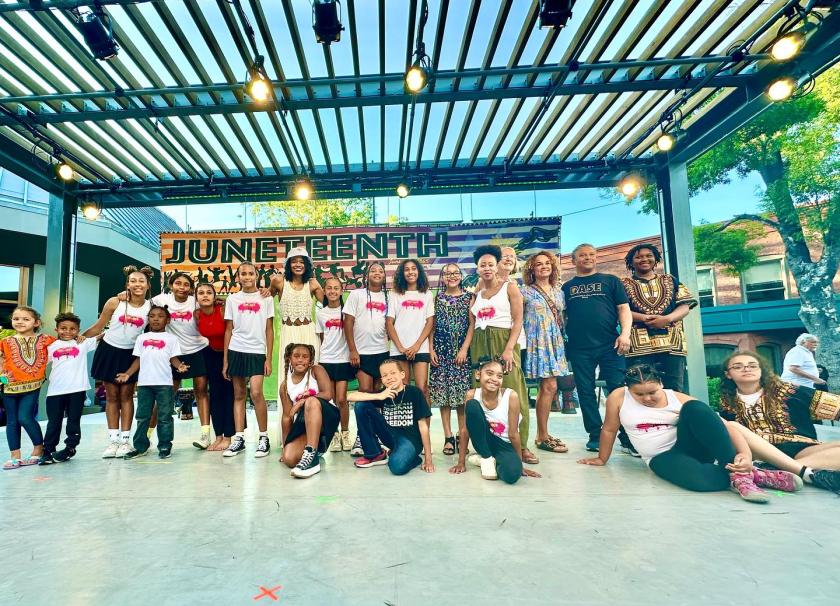
February Change for Good: BASE Southern Oregon
This February, Ashland Food Co-op is proud to support BASE Southern Oregon as our Change for Good partner! BASE (Black Alliance & Social Empowerment) is a nonprofit dedicated to uplifting and empowering Black residents in Southern Oregon through events, resources, and advocacy.
Your donations at the register all month long will help BASE continue their impactful work, and there are plenty of ways to get involved! Here’s what’s coming up:

January’s Change for Good Partner – Community Works
At Ashland Food Co-op, we’re thrilled to kick off the new year by supporting Community Works, our January Change for Good partner. This incredible organization is dedicated to empowering individuals affected by domestic and sexual violence through crisis support, safe housing, and community outreach. Community Works provides services that are free, confidential, and open to all genders, ensuring that no one faces these challenges alone.
Here’s how Community Works is making a difference and how you can get involved:
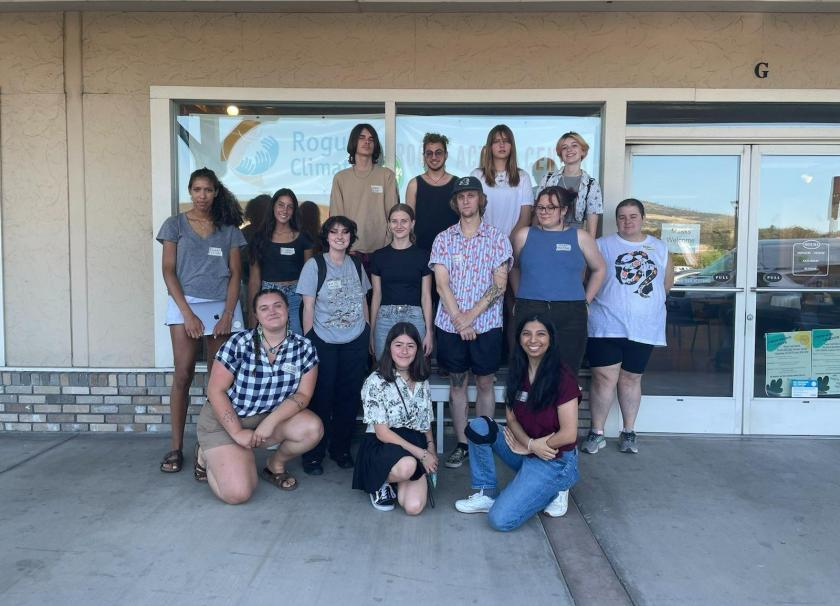
Ashland Food Co-op's December Change for Good Partner: Rogue Action Center
This December, Ashland Food Co-op is proud to partner with Rogue Action Center (RAC) as part of their Change for Good initiative. RAC is dedicated to cultivating organizing power and leadership to create a more just and thriving Southern Oregon. Their mission focuses on building community power for Housing Justice, Racial Justice, and Queer & Trans Liberation. They achieve this through a combination of base building, youth-centered leadership development, coalition building, and advocacy campaigns aimed at transforming societal rules.

Our November Change for Good Partner: SOESD Indian Education Fund
Each month, the Ashland Food Co-op partners with a local nonprofit through our Change for Good program. This November, we are proud to feature the important work of the Southern Oregon Indian Education Department (SOESD) Indian Education Fund.
The Change for Good program allows our shoppers to round up their total at the register, with the extra change going to support a different local nonprofit each month. The funds collected make a meaningful difference for these organizations and the communities they serve.
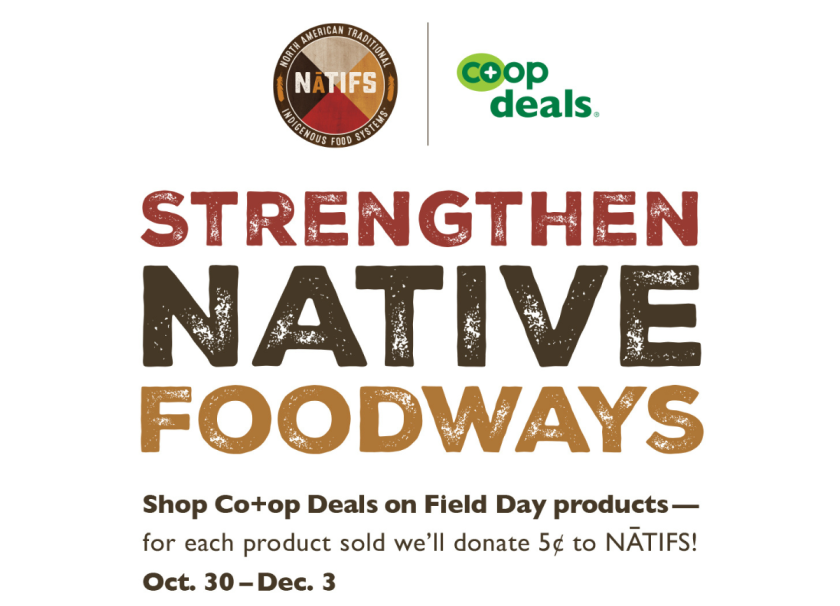
Save on Field Day Items and Support Native Foodways
This November, get ready for gatherings with friends and family with big savings on all Field Day products at your co-op. Save on more than 270 Field Day items — from maple syrup to wild-caught tuna to paper towels — from Oct. 30 through Dec. 3. Field Day is our value brand that offers high-quality, delicious food and household products at more affordable prices every day through Co+op Basics, making this savings event even more spectacular. Our lowest prices will be even lower!
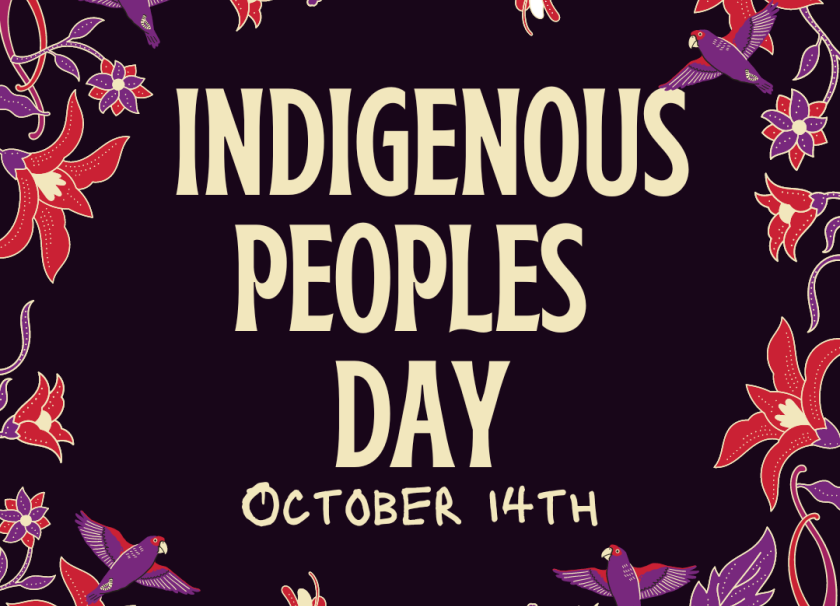
Indigenous Peoples’ Day: Honoring Native Heritage
Indigenous Peoples' Day is a holiday that celebrates and honors Native American peoples and commemorates their histories and cultures. It's observed on the second Monday in October, coinciding with the federal holiday of Columbus Day in the United States.
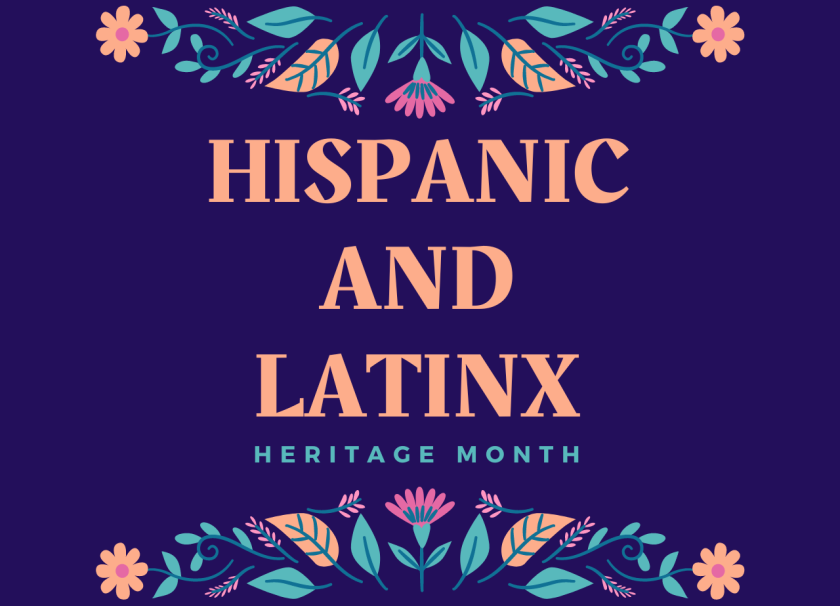
Celebrating Hispanic and Latinx Heritage
September 15th marks the beginning of Hispanic Heritage Month, a time to recognize and celebrate the contributions, diverse cultures, and rich histories of Americans with ancestry from Spain, Mexico, the Caribbean, and Central and South America.
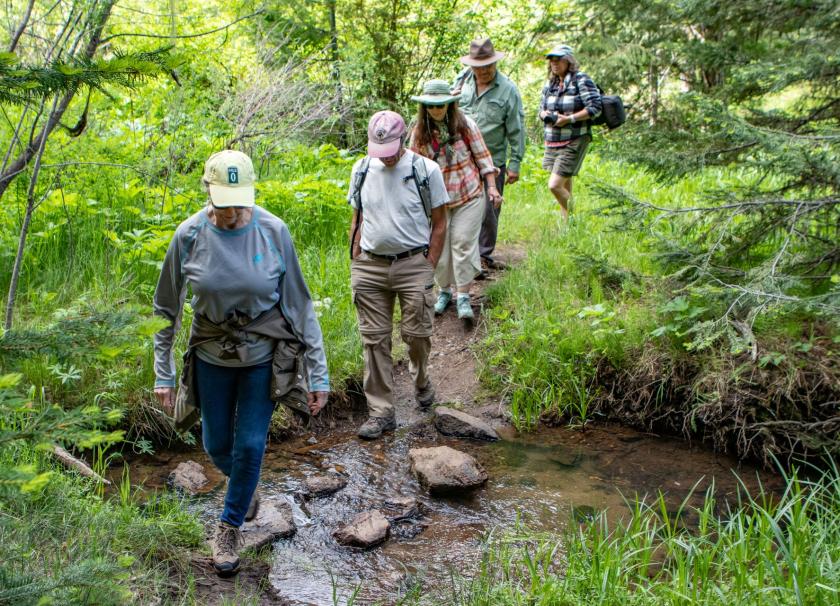
September Change for Good Partner: Friends of Cascade-Siskiyou National Monument
At Ashland Food Co-op, our commitment to community and sustainability is at the heart of everything we do. This September, we’re proud to shine a spotlight on our Change for Good partner, Friends of Cascade-Siskiyou National Monument (Friends of CSNM). This dedicated organization works tirelessly to protect, restore, and conserve the natural beauty of the Cascade-Siskiyou National Monument through service, advocacy, and education.
Stewardship in Action: Restoring Riparian Areas
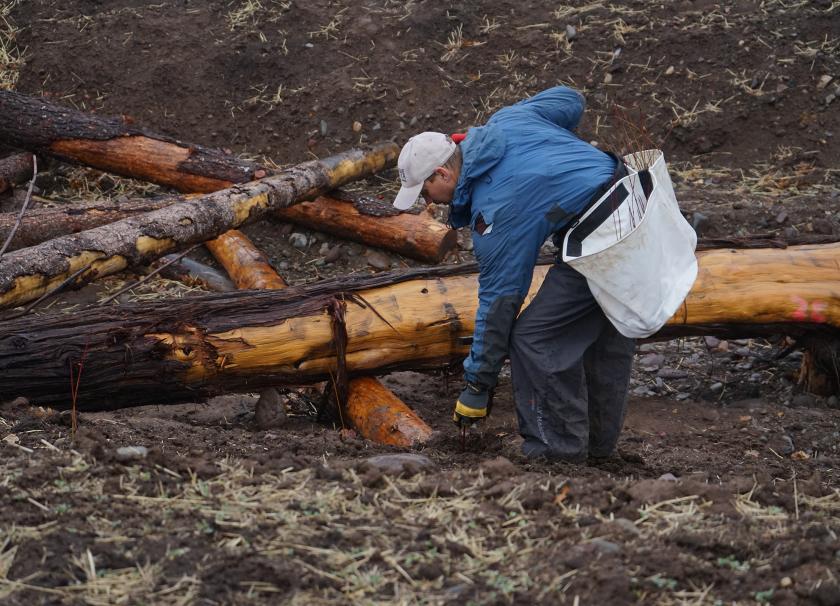
August Change for Good Partner: Rogue River Watershed Council
At Ashland Food Co-op, we are dedicated to fostering a vibrant and sustainable community. Each month, our Change for Good program partners with a local organization to support their mission and amplify their impact. For August, we are thrilled to announce our partnership with the Rogue River Watershed Council (RRWC).
Who is the Rogue River Watershed Council?
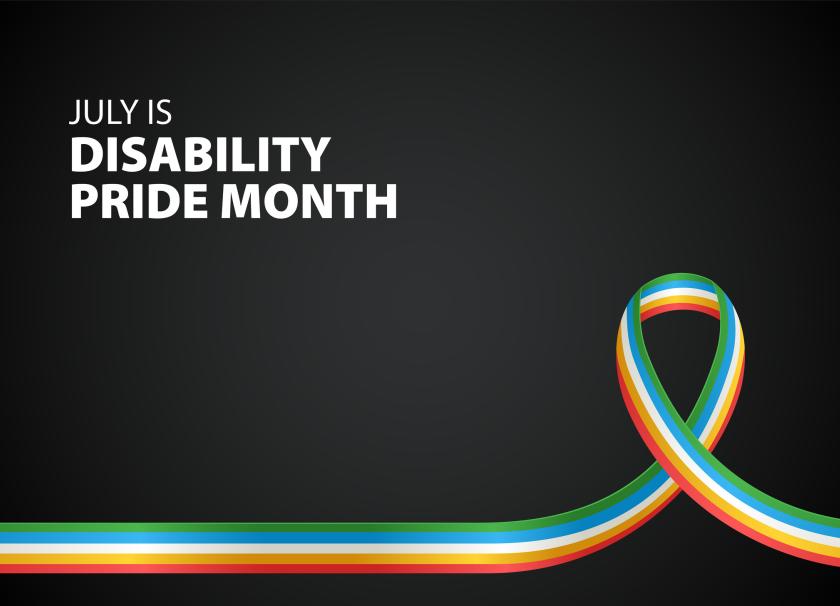
Disability Pride Month
Disability Pride Month, first celebrated in 1990, commemorates the signing of the Americans with Disabilities Act (ADA). This landmark legislation prohibits discrimination based on disability and ensures equal opportunities in all areas of public life. Disability Pride Month promotes visibility and mainstream awareness of the positive pride felt by people with disabilities.
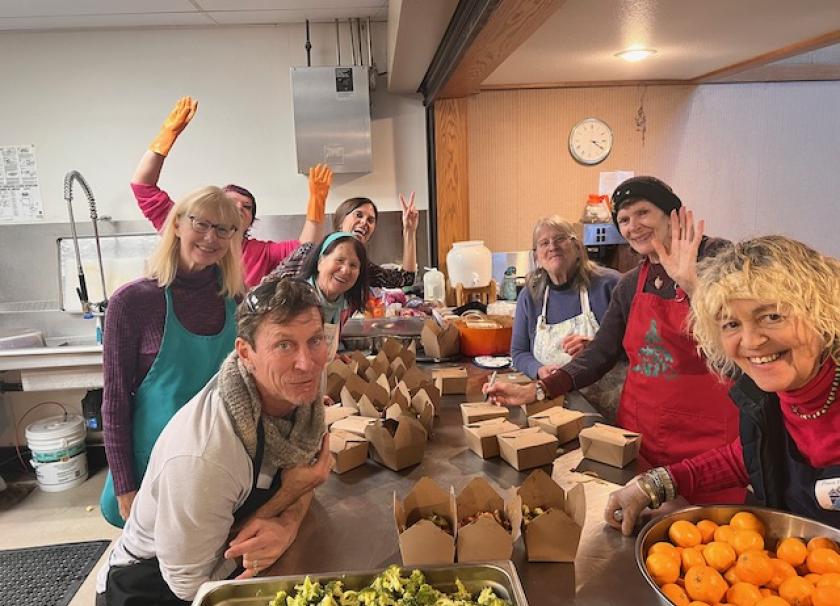
July Change for Good Partner: Peace House
Meet our July Change for Good partner - Peace House! This incredible organization has been a cornerstone of our community, dedicated to building a culture of peace through compassionate actions that support human rights and justice for all.
About Peace House
Peace House has a broad and impactful mission. Their work spans several critical areas, including:
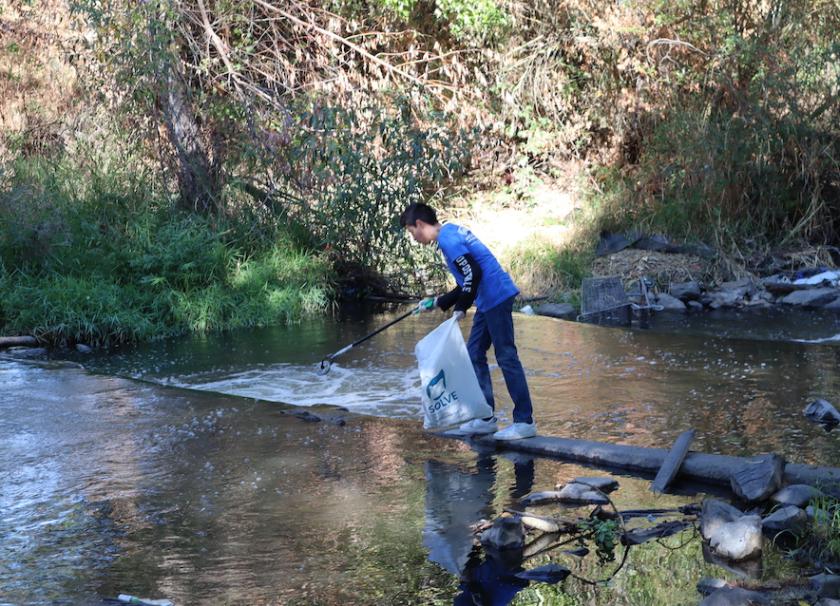
Supporting Stream Smart: Our June Change for Good Partner
We are delighted to announce our June Change for Good partner, Stream Smart, a remarkable local organization dedicated to improving the health of our streams and rivers.
What is Stream Smart?
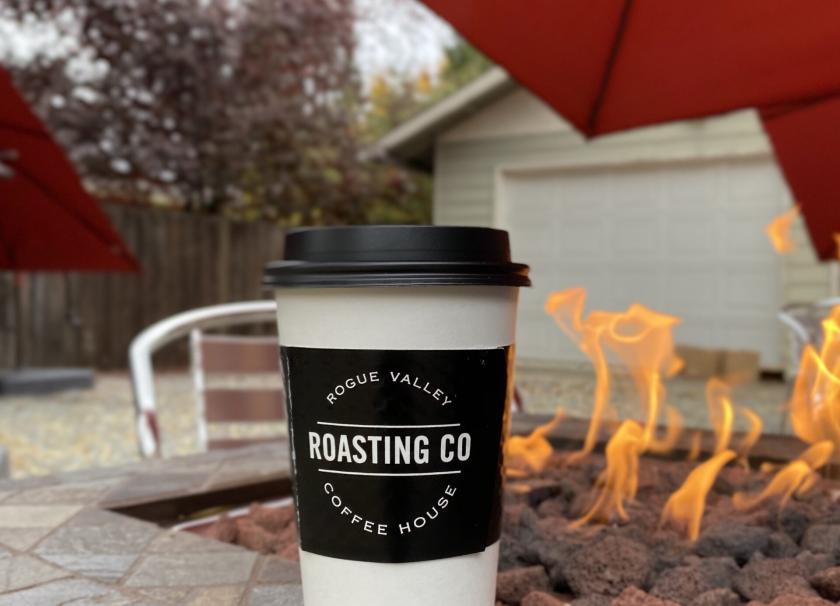
Co-op, Community and Coffee
We are thrilled to announce that the Ashland Food Co-op has purchased the Rogue Valley Roasting Company (RoCo) from longtime owner, Dustin Way.
